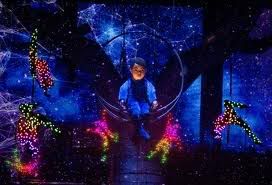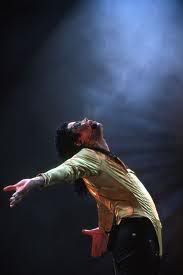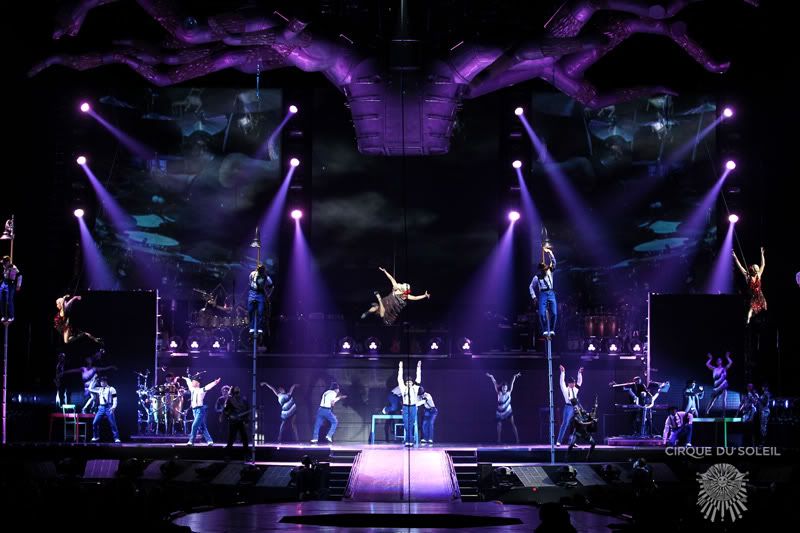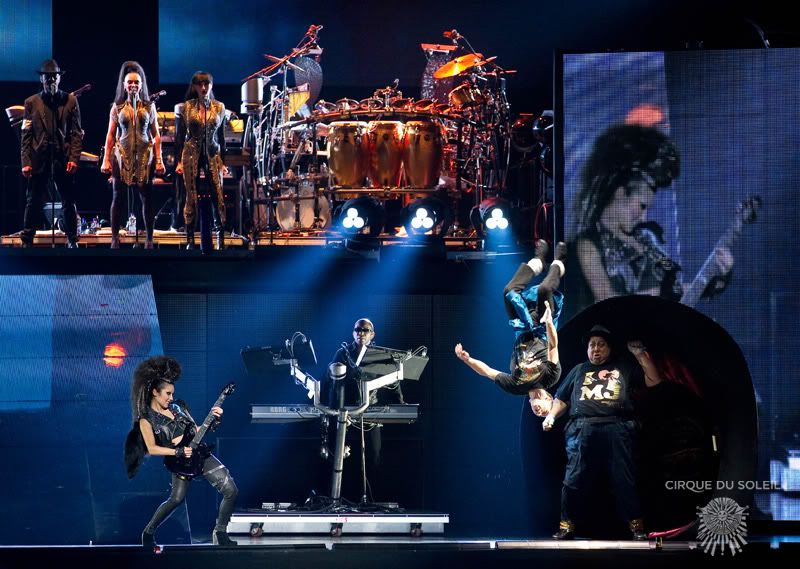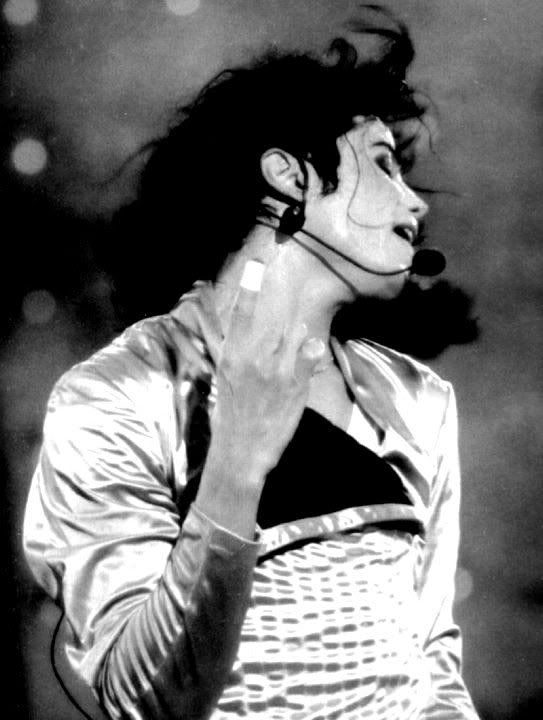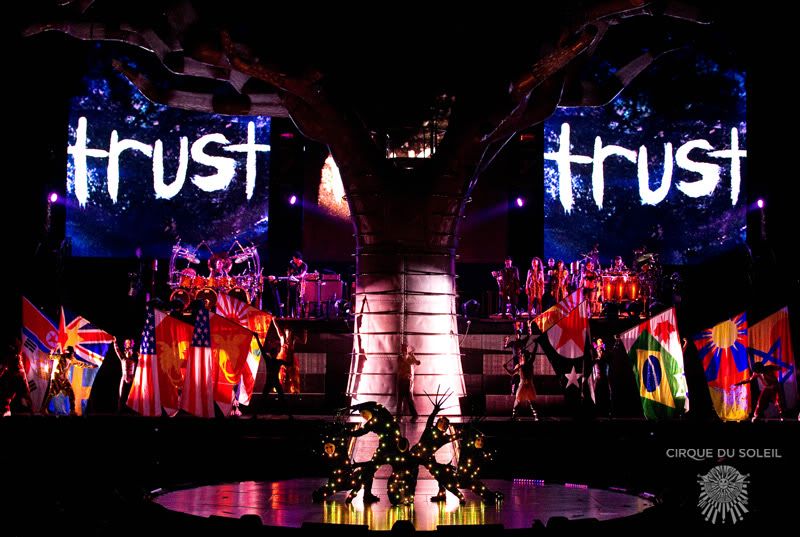Open Response to the Los Angeles Times’ Review of Cirque’s Michael Jackson Immortal
by Joe Vogel (Author of Man in the Music: The Creative Life and Work of Michae Jackson)
The Los Angeles Times’ review of Cirque du Soleil’s Michael Jackson Immortal certainly made clear pop music critic Randall Roberts’ own preconceptions, though at the expense of accuracy and fairness.
Roberts’ disdainful assessment follows a standard pre-2009 template for reviews of Michael Jackson’s work. It includes the requisite moralizing about Jackson’s personal life (what Jackson buying “gaudy vases” in Martin Bashir’s infamous 2003 documentary has to do with the show is anyone’s guess); the unhelpful comparisons (wouldn’t one expect an MJ show to be a bit different than the Beatles?); the uninformed dismissal of his later, more socially conscious work; and a generally condescending tone. Unfortunately, this formula, which the
Timeschose to follow, is the easy way out and doesn’t do justice to the artist or the show.
Indeed, Roberts can’t seem to find a single element of the production worthy of praise. What about the miraculous voice on display, pulled from Jackson’s original, multi-track master recordings? Jackson possessed one of the most unique and versatile voices of the 20th century.
Immortal allows the audience to hear it—from the plaintive purity of “I’ll Be There” to the rhythmic virtuosity of “Workin’ Day and Night” to the powerful call and response of “Earth Song”—with a palpable energy and immediacy. Having attended the show in Detroit and Las Vegas, I can say that the aural experience alone is worth the price of admission.
Supplementing Jackson’s vocals is a world-class live band, led by Jackson’s long-time collaborator and music director, Greg Phillinganes. Roberts suggests the band’s role is “vague” because of their placement on a riser behind the projection screens. Where should they have been placed? Center stage? The idea is to
hearthe band as we
watch the visual spectacle that is Cirque.
Roberts makes frequent comparisons to Cirque’s acclaimed Beatles production,
Love, which makes some sense given Jackson and the Beatles’ respective places in the pop pantheon. What makes less sense is the expectation that
Immortal simply be a cloned version of
Love. After all, there are fundamental differences between the artists themselves. Firstly, Michael Jackson was a dancer. Dancing was central to his artistic identity and his performances. It makes sense, then, to highlight that (meaning more use of “horizontal space”

since many of Jackson’s songs are so inextricably linked to his iconic choreography and storytelling. It also makes sense to utilize the jumbo screens (which aren’t part of
Love), as Jackson was the defining visual artist of an era and pioneered the medium of short films.
Likewise, there are important distinctions in the makeup of the shows.
Love is not a traveling “tour” like
Immortal, which premiered in Montreal, and is making a brief stop in Las Vegas, before hitting the road again in North America and beyond. An entirely new show will settle into its permanent residence at Mandalay Bay in 2013 (taking the place of
The Lion King), at which time it will have the additional benefits of being in one arena. Given its current portable nature, however, it is remarkable what director of creation, Chantel Tremblay (who also worked on
Love), and set designer, Mark Fisher, are able to accomplish. It is also impressive how the production has been streamlined, tweaked and tightened since its premier in Montreal, reducing much of the slapstick and filler and keeping the focus where it should be: on Michael Jackson.
Such context is missing throughout the
Times’ review. At one point, Roberts asks: “How can you justify giving more time and creative energy to ‘Man in the Mirror’ and ‘Earth Song’ in a Michael Jackson show than to ‘Beat It’ or ‘Thriller’? The answer is pretty simple. Songs like “Earth Song” and “Man in the Mirror” were important to Jackson. They are crucial to his essence. Both songs were expected to be central to his planned
This Is It concert series in London. Indeed, “Earth Song” was the last song Jackson rehearsed before his tragic death.
The fact that director/writer Jamie King recognized the significance of such tracks and was willing to pick other less-known songs based on substance rather than popularity enhances rather than diminishes Jackson as an artist and the experience
Immortal provides. In any case, it is not as if classics like “Thriller” and “Beat It” don’t get time. The “Thriller” mash-up with “Is It Scary” and “Threatened” is one of the highlights of the show.
Perhaps the most blatant inaccuracy in Roberts’ piece was the crowd response, which he described as blasé and “uninterested.” To the contrary, the sold-out crowd was enthusiastic throughout and gave the show a standing ovation. It was praised effusively by those close to Jackson, including the singer’s children and siblings (the latter of whom haven’t always been keen about projects generated by the Estate). It also managed to impress Motown founder, Berry Gordy, who saw the show for the first time in Las Vegas, and in a response passed on to me, said:
“The show exceeded my expectations, capturing Michael’s music, spirit, artistry and even his yearnings–what he would have wanted to do in the future. He loved Cirque du Soleil, the magic, the beautiful costumes and the story telling. He would have loved this show.”
High praise indeed coming from someone who knows a thing or two about entertainment—and Michael Jackson.
Joseph Vogel is the author of three books, including the recently released, Man in the Music: The Creative Life and Work of Michael Jackson (Sterling, New York 2011).
http://www.joevogel.net/open-respon...es-review-of-cirques-michael-jackson-immortal




